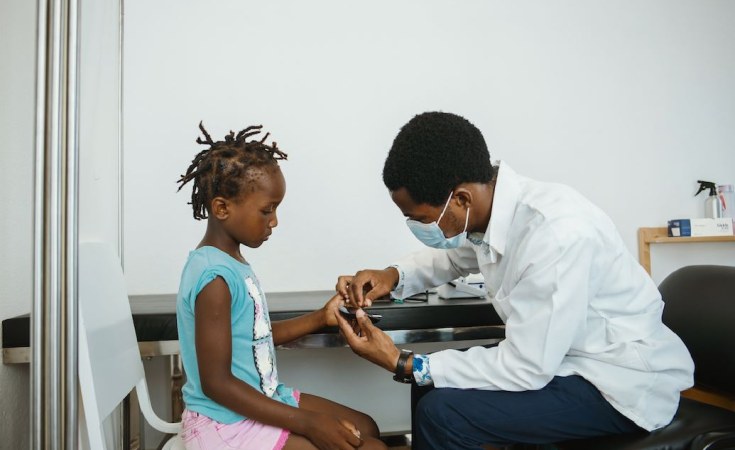Non-communicable diseases, or NCDs, are a leading cause of death globally, with a disproportionate impact on low- and middle-income countries. NCDs are long-term conditions that are not transmitted from person to person. They can develop slowly over time or cause sudden death. According to WHO, the five main types are cardiovascular diseases (heart attacks and strokes), cancers, chronic respiratory diseases (like asthma), diabetes, and mental health conditions.
Africa faces a unique challenge - a "double burden" of both infectious diseases and a rapid rise in NCDs. This strains healthcare systems already under pressure on the continent, making it difficult to allocate scarce resources effectively.
Emmanuel Kisembo, who was diagnosed with type 1 diabetes while at university, shared his lived experience at the World Health Organization African Region's (WHO AFRO) groundbreaking conference in Dar es Salaam, focusing on implementing the PEN-Plus strategy, a program designed to equip district hospitals with the resources to effectively manage serious conditions like heart disease and diabetes.
"We're here today," said Kisembo, "to share ... the day-to-day realities of those grappling with NCDs, not just ourselves but also those in remote areas who may not have a voice." He shared the harsh realities faced by many. "It has been shared previously here that a person diagnosed with diabetes, children diagnosed with diabetes, many don't make it their first year, they don't celebrate their birthday and that's the reality of most of them," he said.
Kisembo, the special initiatives programs manager at Sonia Nabeta Foundation in Uganda, is one of the Voices of PEN-Plus Advocates, the program building solidarity among people living with severe, chronic NCDs across sub-Saharan Africa and Southern Asia. Launched in 2022, PEN-Plus builds upon WHO's existing PEN program, which provides basic NCD care at local clinics. This new initiative expands access to essential medicines, diagnostic tools, and technologies for more complex NCDs, directly impacting patients in district hospitals.
Kisembo, who works on alleviating the hefty cost of treatment for low-income children with type 1 diabetes in Africa, joined hundreds of health experts, government officials, and healthcare providers across Africa.
Kisembo stressed the importance of collective action in addressing the challenges faced by individuals with NCDs, as many children miss out on school because of their chronic conditions.
"I was diagnosed with type 1 diabetes during my first year of university architecture school," Kisembo said. "Despite the challenges, I completed my education, started a family, and built a life. However, this isn't the reality for most people with NCDs. Without implementation, our efforts will remain confined to paper, leaving the situation unchanged," he said.
Dr. Mohamed Abdulaziz, Head of the Disease Control and Prevention Division at the Africa CDC, spoke of the "common interest ... to begin to change some of what we have on the ground".
"It is very clear," Abdulaziz said, "we need a multifaceted, integrated approach to solving the major health system obstacles that hinder the delivery of a comprehensive NCD treatment, prevention, and control plan."
He identified lack of access to medication as a critical issue, saying "This is unacceptable. We must ensure equitable access to essential medicine and services for everyone." He then commended the African Union's initiative to establish a stronger medication procurement mechanism, expressing hope for its role in "getting essential medication...for these high-burden diseases. Let's continue to work together to ensure that everyone has access to the care and support they need."
He acknowledged the growing movement in Africa to leverage community health workers in expanding healthcare access and achieving equity. "We've seen it working in Malawi, Tanzania, and Kenya is coming on board too," he shared. "We need to explore how this approach can bridge the gap."
Unite to fight NCDs
Dr. Charles Sagoe-Moses, a representative of the World Health Organization (WHO) in Tanzania, spoke of the determination that children displayed while attending the conference.
"In witnessing the participation of children who expressed their determination to combat NCDs, I am deeply inspired. As we envision the next 20 years, can we ensure their success? The answer lies in our collective action today," said Dr. Sagoe-Moses.
He urged African governments to step up their leadership in tackling NCDs. This includes not only stronger leadership but also increased domestic investment. He stressed the importance of coordinating these efforts with existing partnerships to maximize their impact.
Dr. Gene Bookman, co-chair of the NCDI Poverty Network, commended the impactful atmosphere fostered by WHO at the conference. He stressed the importance of WHO addressing critical gaps in combating non-communicable diseases (NCDs) across Africa. Dr. Bookman succinctly outlined the goal of initiating PEN-Plus programs in 70% of African countries by 2030.
Tanzania's Director of Curative Services at the Ministry of Health Dr. Hamad Nyembea, emphasized scaling up PEN and PEN-Plus programs and prioritizing person-centered care. He called for increased domestic investment, leadership in public health, and collaboration among stakeholders, and urged WHO to continue advocating for for SDGs and universal health coverage, while also encouraging private sector investment in NCDs.


